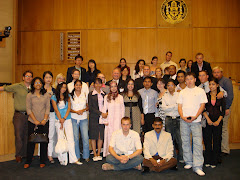By David Templeton, Pittsburgh Post-Gazette
Tue, 11 Sep 2007, 11:41AM
ERIE, Pa. - An Erie cancer researcher has found a way to burn salt water, a novel invention that is being touted by one chemist as the "most remarkable" water science discovery in a century.
 John Kanzius happened upon the discovery accidentally when he tried to desalinate seawater with a radio-frequency generator he developed to treat cancer. He discovered that as long as the salt water was exposed to the radio frequencies, it would burn.
John Kanzius happened upon the discovery accidentally when he tried to desalinate seawater with a radio-frequency generator he developed to treat cancer. He discovered that as long as the salt water was exposed to the radio frequencies, it would burn. The discovery has scientists excited by the prospect of using salt water, the most abundant resource on earth, as a fuel.
Rustum Roy, a Penn State University chemist, has held demonstrations at his State College lab to confirm his own observations.
The radio frequencies act to weaken the bonds between the elements that make up salt water, releasing the hydrogen, Roy said. Once ignited, the hydrogen will burn as long as it is exposed to the frequencies, he said.
The discovery is "the most remarkable in water science in 100 years," Roy said.
"This is the most abundant element in the world. It is everywhere," Roy said. "Seeing it burn gives me the chills."
Roy will meet this week with officials from the Department of Energy and the Department of Defense to try to obtain research funding.
The scientists want to find out whether the energy output from the burning hydrogen — which reached a heat of more than 3,000 degrees Fahrenheit — would be enough to power a car or other heavy machinery.
"We will get our ideas together and check this out and see where it leads," Roy said. "The potential is huge."
http://green.yahoo.com/index.php?q=node/1570
Note: We thank Dave for forwarding this news link.
ADAM CASLER - COUNTER POINT
* One problem. What do you do with all the salt once it has been separated from the water? If one plans to use this technology on a commercial scale there will be massive stockpiles of salt that must be accounted for.
* The salt cannot be merely poured back into the ocean because this will increase the salinity of the water past its ecological capacity and will begin to kill fish and other ocean-life. You cannot merely bury such quantities of salt because it will turn the soil into a desert incapable of growing any plant-life and possibly seeping down into the groundwater and contaminating our drinking sources. Nor can you just leave the salt in massive piles above ground because the wind will carry it and blow it to either the ground or water. And its easy to see how quickly storing the salt in ware-houses would become a problem.
* While this discovery has the potential to be a nice supplement and replacement to the current methods of desalinization such as those used extensively in the Arab-gulf which currently require much more energy expended than received, it will not be a source that can possibly replace oil as the article seems to suggest until this issue of the salt is remedied.







1 comment:
One problem. What do you do with all the salt once it has been separated from the water? If one plans to use this technology on a commercial scale there will be massive stockpiles of salt that must be accounted for. The salt cannot be merely poured back into the ocean because this will increase the salinity of the water past its ecological capacity and will begin to kill fish and other ocean-life. You cannot merely bury such quantities of salt because it will turn the soil into a desert incapable of growing any plant-life and possibly seeping down into the groundwater and contaminating our drinking sources. Nor can you just leave the salt in massive piles above ground because the wind will carry it and blow it to either the ground or water. And its easy to see how quickly storing the salt in ware-houses would become a problem. While this discovery has the potential to be a nice supplement and replacement to the current methods of desalinization such as those used extensively in the Arab-gulf which currently require much more energy expended than received, it will not be a source that can possibly replace oil as the article seems to suggest until this issue of the salt is remedied.
Post a Comment